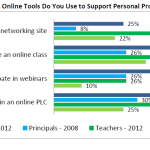February 7, 2012
Build a USNA Midshipman–Part IV
Building a Midshipman is the story of one applicant’s journey from high school student to Midshipman in the United States Naval Academy.
It has been the bible for many military academy applicants, whether their goal is a spot at the Naval Academy, West Point, the United States Air Force Academy or the Coast Guard Academy. Now, Monday’s, I’ll serialize it on this blog for free. Of course, if that’s too slow, you can purchase the book on the publisher’s website or Amazon. Either way, you get lots of tips and tricks for cracking the Naval Academy application.
To be sure you don’t miss any of these:
Here’s the fourth installment:
Chapter One–Part Two
Who You Are
Your family hates quitting. Anything. No matter how inconsequential, quitting requires a seminal decision. Success shadows tenacity, like Sonny and Cher, or deposits and withdrawals.
One doesn’t work without the other. ‘Tenacity’ is the patent ingredient to success, like the formula for Coke or the secret to aspirin. Everything just works better with tenacity. Though some people succeed by skill or brilliance, the more dependable route is persistence. Working hard, though the inspiration to many for quitting, is why you succeed more often than those around you.
You never quit. Well, once you did. At the age of seven, you took ball et for one month and quit. You were never allowed to ballet again.
If a good reason to quit evolves, the corollary to “Never Quit” takes over: You begin another activity. Shaolin-kenpo karate replaced ballet. You studied this martial art for seven years, until you completed all the dojo’s classes and belt levels. It evolved to tae-boxing, kick-boxing, and finally boxing. Martial arts had become a part of you. You started violin in fourth grade. Even when many friends dropped music in favor of parties or hanging out in seventh and again in tenth grade, you continued. Ultimately, your persistence brought excellence. Years of dedication and constant practice have made you one of the best violinists in the area.
You played soccer for nine years, and then took up cross country. Model United Nations in ninth grade became Academic Decathlon in tenth grade, which segued to the International Baccalaureate degree program as a junior. This constant activity distilled to a Life Lesson: Diversity and doggedness equates to success. If you struggled with grades, you excelled with music. If your music mired, you won karate competitions. You never felt failure, because as one endeavor waxed, another waned. Over time, this engendered a positive personality and inability to admit defeat—characteristics that serve as pointmen in navigating high school’s minefields.
And you learned one of life’s guiding rules: Never never never give up.
Your parents believe in God, but not blindly. You received First Communion and Confirmation, and participate in church youth activities. Your weekly agenda includes the church’s moral guidance and sometimes subjective opinions. The drive home on Sundays serves as a debriefing of the priest’s instructions. Pros and cons are debated, often with no clear resolution. But respect for God envelopes all conversations.
One church sermon woven into the fabric of family life taught, “Wherever you are, be there till you leave.” Whatever consumes you at a particular moment in time, give it 100%, enjoy it, and don’t wish for what isn’t.
Another one of life’s guiding lessons.
And then one Sunday, during senior year, the priest traded the sermon for a presentation on the benefits of on-line dating—and that was the last mass attended. Ultimately, it didn’t matter that Sundays no longer started with church because by that time, organized religion had metamorphosed into a way of life, a concept, a moral judgment. A reverence that required no human homily to reinforce.
Your family stresses achieving to your potential, but not the straight A’s; trying your hardest, but not the win; and finishing the race, but not the first place. You got B’s in AP Physics and AP Calculus. That categorized as a success, as did the A in Math Analysis, because you’d done your best. You learned the true joy of pushing yourself to a breaking point, to see—where do your personal limits lie? How much can you accomplish if you must? The USNA PAE (Physical Aptitude Examination requires you to hang from a bar (chin over the bar, palms out) for eighteen seconds. You started at zero seconds. You thought that represented the best you could do, but your Dad knew you weren’t trying your hardest. To this day, you hear his words…
“If you were hanging from a window outside a burning building, you’d be able to hold on longer than zero seconds—or eighteen seconds.”
That didn’t make a lot of sense at first, but gradually, slowly, yes—you came to understand what that concept meant: No excuses. Just do it.
You have followed the Honors path since elementary school, embracing the commitment required to accomplish the accelerated demands. Sometimes your hold on this scholastic label slips, like that bar you so precariously grasp. You find yourself safeguarding your time in an effort to balance the many pivotal events against insufficient minutes. Sometimes, you achieve an unsteady equilibrium, and other times you can’t seem to find the fulcrum.
But, when all USNA applications have been reviewed and selections made, you embody proof that the United States Naval Academy doesn’t select students based on a formula. You don’t have 1600 SAT’s, or the highest GPA—nor the penultimate. You struggle for the grades you get, which means you know how to work through difficult challenges.
You aren’t an All-State athlete or a CIF star with six Varsity letters like some of the applicants you meet. But, you doggedly worked your soccer skills until you won a spot on the Varsity team. You trained in Shaolin kenpo karate until you secured a Second degree Black Belt and instructor certification, and successfully represented your dojo in Martial Arts competitions nationwide. And, you were nervy enough to join cross country your senior year as preparation for the paradoxical dream/nightmare of Plebe Summer.
You received B’s in AP Physics and AP Biolog y (and an A in Chemistry), but you’re considered a star in science. You won the coveted Academic Achievement Award in Science (awarded by the high school science department), and merited semi-finalist in the Siemens Westinghouse science competition (a three-year-long independent research project on phenotypic and genotypic differences between plants on two tectonic plates). Additionally, you participated in the University of Notre Dame’s three-week hands-on biology seminar.
Yes, even as you struggle with its puzzling convolutions, you love science.
You aren’t an ASB leader—you don’t like its popularity focus, and it takes too much time from academics. Sports and music have always been critical activities, and you’re pretty good at them. You served as president of the Young Musician’s Guild, concertmaster in several orchestras, IB Group leader, as well as an active community service participant.
By the end of high school, you’ve developed a passion for achieving and an insatiable intellectual curiosity. No school better values these characteristics than the United States Naval Academy.
In the words of Dr Martin Luther King…
“… if there is not something so important, so dear to a man’s heart that he is willing to die for it, then he isn’t fit to live.”
Next week: Chapter Two: How it All Started.
If you don’t want to wait through the installments (or can’t)–or want to access the workbook, Building a Midshipman can be purchased here:
- Amazon.com (print book)
- Scribd.com (digital edition)
- Structured Learning (Publisher’s website–either)
Jacqui Murray is the editor of a technology curriculum for K-fifth grade and author of two technology training books for middle school. She wrote Building a Midshipman, the story of her daughter’s journey from high school to United States Naval Academy midshipman. She is webmaster for five blogs, an Amazon Vine Voice book reviewer, a tech columnist for Examiner.com, Editorial Review Board member for ISTE’s Journal for Computing Teachers, IMS tech expert, and a weekly contributor to Write Anything. Currently, she’s editing a thriller for her agent that should be be out to publishers this summer. Contact Jacqui at her writing office or her tech lab, Ask a Tech Teacher.







